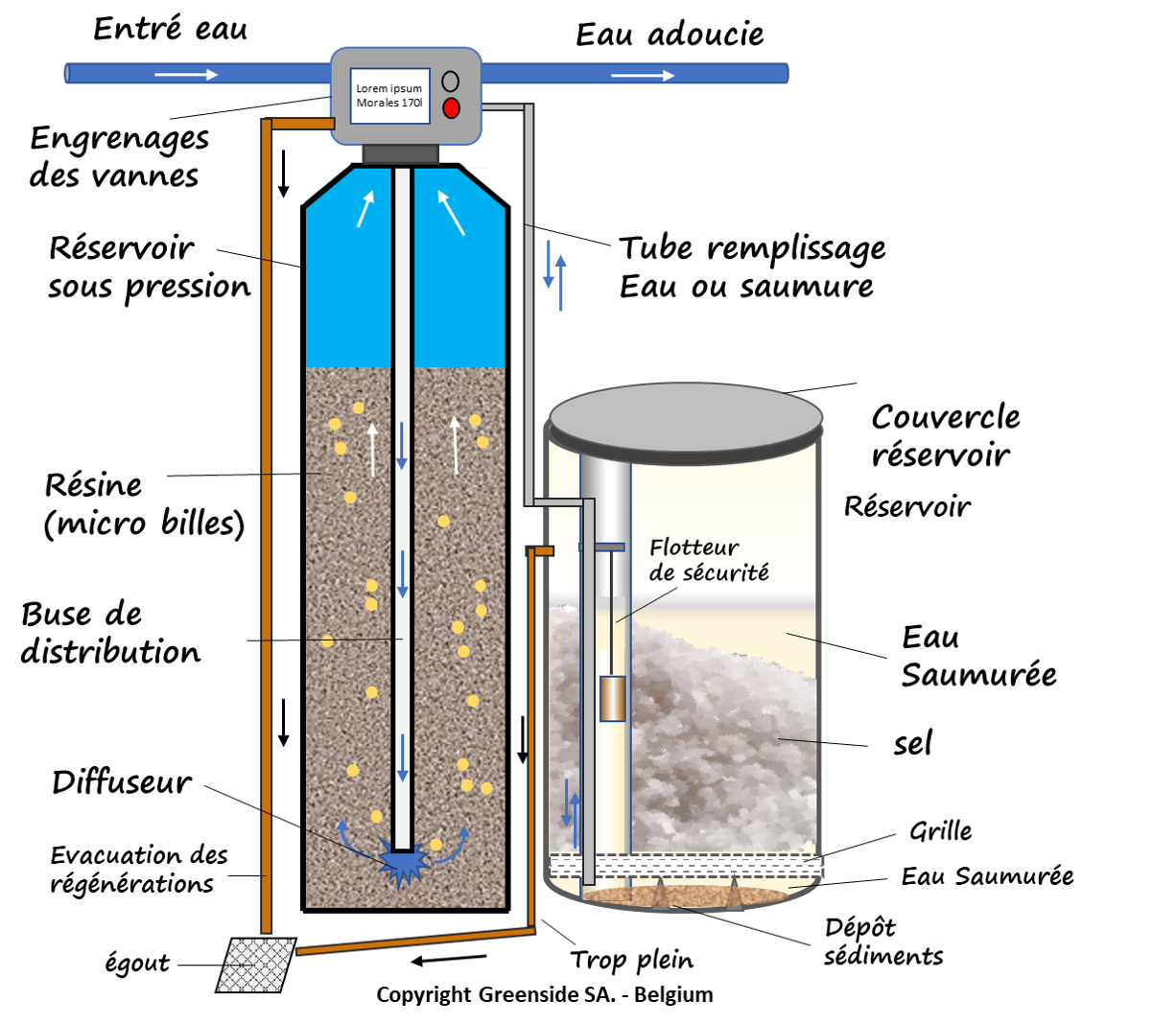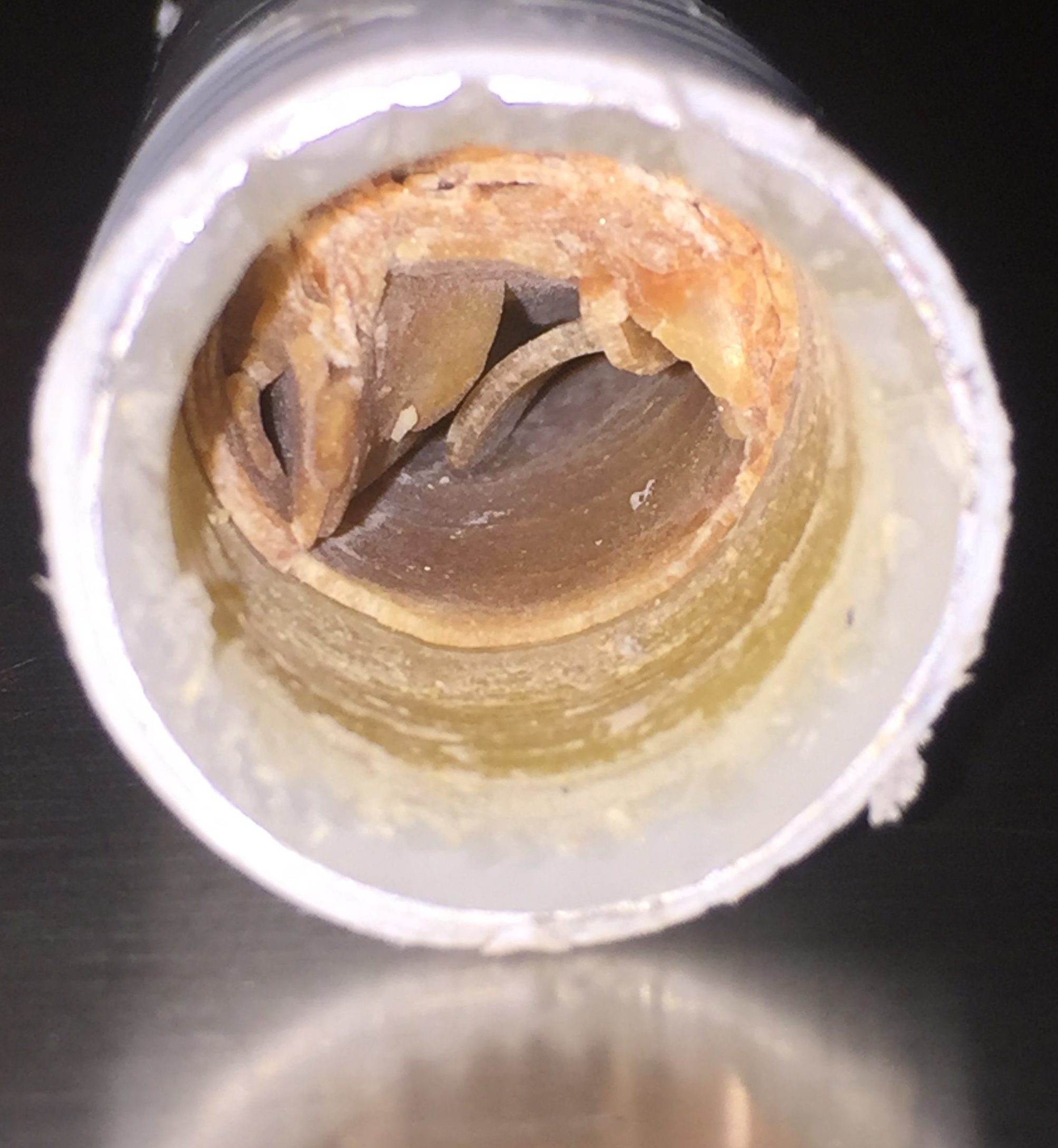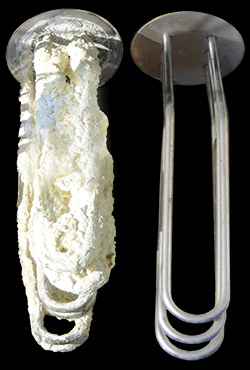Water softener
Which to choose? salt, CO2…
There are several ways to prevent limescale from setting in your systems, with or without salt.
Although salt water softeners are among the oldest processes, dating back to the chemical revolution in 1921, they do have their advantages when it comes to removing limescale from water.
However, their use is marred by a series of harmful side-effects, both for installations and for health and the environment.
- Rust on steel and galvanized pipes: The salt softener can become aggressive to steel and galvanized pipes due to the natural corrosive effect of salt, compromising their durability and integrity.
- High salt concentration:Although salt-treated water is technically potable, it has a high salt concentration, making it inadvisable for certain at-risk individuals such as those suffering from heart or kidney failure, pregnant women and young children. According to analyses carried out by Aquawal in July 2005, most softened waters have salt levels of between 100 and 150 mg/l, highlighting a potential impact on public health.
- Germ proliferation : Disinfection of the treatment tank resins is required at least once a year, adding a further constraint to the regular maintenance of these systems.
- Discharge of salt water into sewers, polluting ecosystems: Salt water softeners This contributes to the pollution of natural ecosystems such as rivers and groundwater. This phenomenon raises major environmental concerns about water quality and the preservation of aquatic habitats.
- Risk of execive consumption and corrosive water spills. Themechanical system of salt water softeners has its shortcomings in terms of reliability. The gears that control operation, for example, can jam in the rinse position, resulting in continuous, direct discharge into the sewer until the unit is switched off.

Salt water softener
CO2 water softeners water softeners are emerging as an innovative and promising alternative, offering an effective solution while reducing environmental impact and guaranteeing enhanced reliability.
We will explore the advantages of CO2 water softeners, both in terms of the quality of the water consumed, their environmental impact and their reliable design, highlighting their relevance in today’s context of resource conservation and public health protection.
Why limit scale?
Limescale is that white, encrusted deposit that can be seen on taps and shower doors once the drops of water have dried.


Because of this scale:
- Appliances consume more energy (10% extra consumption per millimetre of limescale). Overheating causes their electrical resistance to break prematurely.
- Pipes lose water pressure at the tap. Showerheads and faucet aerators clog up. Chromium plating and sanitaryware coverings are quickly damaged by limescale or the abrasive products used to clean them. Water pressure safety devices on boilers and flush toilets leak and let water run continuously.
- Skin becomes dry and causes eczema. Hair becomes rough.
- Linen is hard after washing and wears out more quickly.
- Aggressive descaling products or vinegar are needed to remove it.
Find a CO2 water softener near you
The Hydrokube CO2 softener uses edible, economical and environmentally-friendlyCO2.
It is on sale in our online store
